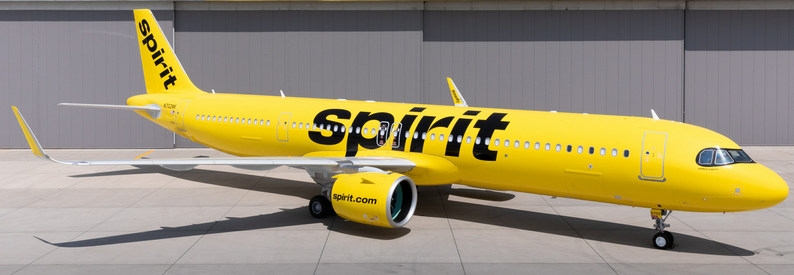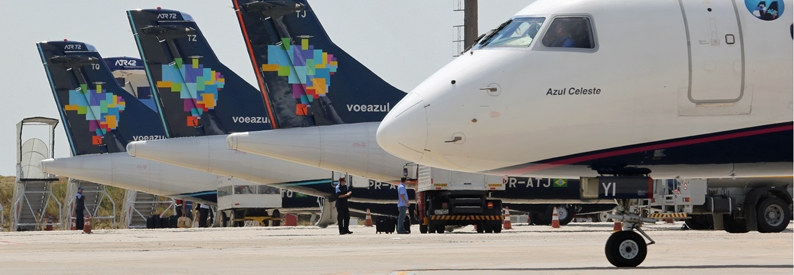The US Federal Aviation Administration (FAA) will issue an emergency airworthiness directive grounding all B777 widebodies powered by certain Pratt & Whitney engines, following an uncontained engine failure on a United Airlines B777-200 on February 20, 2021.
"After consulting with my team of aviation safety experts about yesterday's engine failure aboard a Boeing 777 airplane in Denver International, I have directed them to issue an Emergency Airworthiness Directive that would require immediate or stepped-up inspections of Boeing 777 airplanes equipped with certain Pratt & Whitney PW4000 engines. This will likely mean that some airplanes will be removed from service," FAA Administrator Steve Dickson said.
The directive has yet to be published as the FAA is still working with operators and manufacturers to finalise the details. Dickson indicated that it would entail shorter inspection intervals "for the hollow fan blades that are unique to this model of engine, used solely on Boeing 777 airplanes".
In a separate statement, Boeing said it recommended grounding all PW4000-powered B777s pending a National Transportation Safety Board (NTSB) investigation into the incident.
The FAA announcement followed an earlier decision by the Japanese Civil Aviation Board to suspend all operations of the type in its aerospace, including overflights.
On February 20, N772UA (msn 26930), operating as flight UA328, suffered an uncontained engine failure and fire on take-off from Denver, en route to Honolulu. Large portions of the engine nacelle separated and fell into a residential area, although there were no reported injuries on the ground. The aircraft landed safely back at Denver Int'l with no injuries onboard. An initial investigation revealed that two fan blades in the right engine had fractured, although no substantial damage to the aircraft superstructure was found.
Boeing said that there were currently 69 Pratt & Whitney-powered B777s in service and a further 59 in storage. According to the ch-aviation Commercial Aviation Aircraft Data module, 116 widebodies with PW4000 engines are currently assigned to an operator, inclusive of both active and parked aircraft. The operators of these aircraft include:
- ANA - All Nippon Airways (NH, Tokyo Haneda) with 20 aircraft in total, including B777-200s, B777-200ERs, and B777-300s,
- Asiana Airlines (OZ, Seoul Incheon) with nine B777-200(ER)s,
- JAL - Japan Airlines (JL, Tokyo Haneda) with 13 aircraft, including B777-200s and -300s,
- Jin Air (LJ, Jeju) with four B777-200(ER)s,
- Korean Air (KE, Seoul Incheon) with 16 aircraft, including B777-200(ER)s and -300s,
- Ukraine International Airlines (PS, Kyiv Boryspil) with a single B777-200(ER), and
- United Airlines with 52 aircraft, including the B777-200s and -200(ER)s.
One PW4000-powered B777-200 is also used as a testbed aircraft by Boeing.
Despite a significant number of B777s with PW4000 engines operated in South Korea, the local authorities there have yet to announce their own actions beyond FAA's and Boeing's steps. Korean Air and Asiana Airlines said they would voluntarily ground the aircraft. Jin Air said it was awaiting directives from the authorities. Flightradar24 ADS-B data shows that the low-cost carrier operated two out of its four B777-200(ER)s on February 22, 2021.
Chairman of EgyptAir (MS, Cairo International) Mohamed Rushdi Zakaria said that the airline would refrain from operating its B777-200(ER)s following the incident. However, the carrier's B777-200(ER)s have been grounded since 2018-2019, despite the recent talk about reactivation for vaccine cargo flights.
The Minister of Transport of the United Kingdom, Grant Shapps, said on Twitter that the country also banned overflights of B777s with PW4000 engines, although at this stage this ban bears no practical implications.
The PW4000-112 engine family is an umbrella term for a number of variants characterised by a 112-inch fan diameter, comprising the PW4074, PW4077, PW4084, and PW4090 subtypes. They are used in the B777-200, -200(ER), and -300 variants, although they are substantially less popular than rival General Electric GE90 powerplants (which are also the exclusive engine type for the B777-300ER and the B777-200LR) or the Rolls-Royce Trent 800. Other PW4000 subtypes with smaller fan diameters are used in A300-600s, A310-300s, A330-200s, A330-300s, B747-400s, B767-200s, B767-300s, and MD-11s.
- Type
- Base
- Aircraft
- Destinations
- Routes
- Daily Flights









Editorial Comment: The article has been updated regarding operations in South Korea, Egypt, and the United Kingdom. - 22Feb2021 - 15:26 UTC